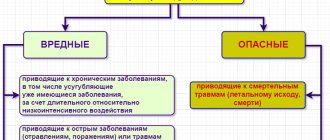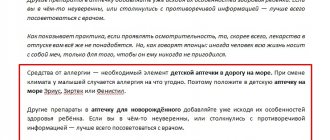In the modern world, the profession of a manager occupies a leading place in the organization and management of any production process. For those who want to be successful and choose a decent, well-paid job, it is useful to understand who a manager is, the characteristics of the profession, what he does. It is important to understand what qualities you need to have and how to become a manager.
Who is a manager, features of the profession
Manager , in other words, the manager of the production process, involved in the creation and management of any field of activity. He professionally organizes the solution of assigned tasks by leading a team of performers.
The prosperity of the business entrusted to him and the growth of profits depend on the correct, competent adoption of managerial decisions on the distribution of powers and resources.
Managers refer to a wide range of professionals, which include:
- Managers managing organizations or their structural divisions;
- coordinators of large groups of employees;
- narrowly focused specialists in organizing a specific business;
- Managers at every stage of production activity.
Manager's responsibilities
Depending on the company's field of activity, the manager's managerial responsibilities may be more specific, but in general his functions include:
- Ensuring the launch and smooth operation of the company and its effective functioning.
- Determining the company's long-term strategy and identifying further development goals. As a result, plans are communicated to employees and monitoring their implementation.
- Ensuring the company's personnel policy to determine the quantitative composition of employees and their motivation in terms of incentives.
- Carrying out constant monitoring of the market for goods and services in order to analyze demand for the company's products.
- involvement of audit and experts to evaluate the results of the set financial and quantitative tasks.
Important! For a manager, the main professional goal is the constant growth of the company’s profits and the reduction of costs for the production of goods or the provision of services.
Job description for the specialty "Manager"
Manager's job descriptionzip
You can download the manager's job description for free . Manager's responsibilities
I approve
_____________________________ (Last name, initials)
(name of organization, its ________________________________
organizational and legal form) (director; other person authorized
approve job description)
00.00.201_g.
m.p.
JOB DESCRIPTION
MANAGER
——————————————————————-
(name of institution)
00.00.201_g. №00
1. General Provisions
1.1. This job description defines the rights, duties and responsibilities of the manager of _____________________ (hereinafter referred to as the “enterprise”).
Name of institution
1.2. A person with higher professional education (in the specialty of management) or higher professional education and additional training in the field of theory and practice of management and work experience in the specialty for at least two years is accepted for the position of Manager.
1.3. A manager is appointed to a position and dismissed by order of the General Director.
1.4. The manager is subordinate to ________________________________________.
1.5. The manager must know:
-market economy, entrepreneurship and doing business;
-market conditions, pricing procedures, taxation, marketing basics;
-the theory of management, macro- and microeconomics, business administration, stock exchange, insurance, banking and finance;
-legislative and regulatory legal acts regulating entrepreneurial and commercial activities;
-theory and practice of working with personnel;
-forms and methods of conducting advertising campaigns;
-ethics of business communication; basics of production technology; management structure of an enterprise, institution, organization, prospects for innovation and investment activities;
- the procedure for developing business plans and commercial terms of agreements, agreements, contracts; fundamentals of sociology, psychology and labor motivation;
-methods for assessing the business qualities of employees; basics of office work;
-basics of labor legislation;
-advanced domestic and foreign experience in the field of management; rules and regulations of labor protection.
-methods of information processing using modern technical means of communication and communications, computer technology.
1.6. During the temporary absence of the Manager, his duties are assigned to “Full name, position”
2. Responsibilities
The manager must:
2.1.Plan entrepreneurial or commercial activities.
2.2. Monitor the development and implementation of business plans and commercial conditions, concluded agreements, agreements and contracts, assesses the degree of possible risk.
2.3. Manage the entrepreneurial or commercial activities of an organization aimed at meeting the needs of consumers and generating profit through stable operation, maintaining business reputation and in accordance with the powers granted and allocated resources.
2.4.Involve consultants and experts on various issues (technical, legal, financial, etc.) in solving problems.
2.5. Analyze and solve organizational, technical, economic, personnel and socio-psychological problems in order to stimulate production and increase sales volumes, improve the quality and competitiveness of goods and services, economical and efficient use of material, financial and labor resources.
2.6. Organize connections with business partners, a system for collecting the necessary information to expand external relations and exchange experience.
2.7.Select and place personnel, motivate their professional development, evaluate and stimulate the quality of work.
2.8. Analyze the demand for manufactured products or services, motivation and sales forecast by assessing and studying customer needs.
2.9. Ensure increased profitability, competitiveness and quality of goods and services, increased labor efficiency.
2.10. Coordinate activities within a certain area, analyze its effectiveness, and make decisions on the most rational use of allocated resources.
2.11.Take part in the development of investment and innovation activities, advertising strategies related to the further development of entrepreneurial or commercial activities.
3. Rights
The manager has the right:
3.1. Monitor the implementation of planned tasks and work, timely completion of individual orders and tasks by the services subordinate to him.
3.2.Give instructions and tasks to subordinate employees and services on a range of issues included in his functional responsibilities.
3.3. Request and receive the necessary materials and documents related to the activities of the Manager and his subordinate services.
3.4.Enter relationships with departments of third-party institutions and organizations to resolve operational issues of production activities within the competence of the Manager.
3.5.Represent the interests of the organization in third-party organizations on issues related to his professional activities.
4. Responsibility
The manager is responsible for:
4.1.For the work of the organization’s services (divisions) subordinate to him on issues that are the responsibility of the department.
4.2. Failure to ensure the fulfillment of their functional duties.
4.3. Inaccurate information about the state of implementation of work plans by the department and subordinate services.
4.4. Failure to take measures to suppress identified violations of safety regulations, fire safety and other rules that pose a threat to the activities of the organization and its employees.
4.5. Failure to ensure compliance with labor and performance discipline by employees of the organization’s subordinate services.
4.6. Failure to comply with orders, instructions and instructions of the General Director of the organization.
5. Working conditions
5.1.Due to production needs, the Manager may go on business trips (including local ones).
5.2. The Manager’s work schedule is determined in accordance with the internal labor regulations established in the organization.
5.3. To resolve operational issues to ensure production activities, the Manager may be allocated company vehicles.
Head of structural unit: _____________ __________________
(signature) (surname, initials)
00.00.201_g.
I have read the instructions,
one copy received: _____________ __________________
(signature) (surname, initials)
00.00.20__
Classification and types of managers
The level at which the degree of managerial and job competencies of a manager is located can be characterized by three levels of the hierarchy adopted in international gradations.
First stage
These are junior (line) managers - hired employees who not only manage production work processes, but also directly participate in them.
These include:
- senior, leading employees of teams under whose command one or more workers;
- foremen, foremen or administrators leading a group of workers;
Second stage
These are middle managers who carry out general management, manage line-level subordinates and implement all decisions and tasks in specific production and monitor the output and quality of products. These are employees with special industry education and, as a rule, they do not take part in the direct production of goods and services.
These include:
- managers of sections that consist of several teams;
- department heads who manage a group of workers accomplishing specific goals;
- shop managers who manage a large division of a company, which consists of departments and sections.
Third stage
This is a senior manager, TOP manager , head or manager of the entire company or his deputies in certain areas. The job responsibilities of top managers include developing the company's strategic goals and setting tasks for middle and line managers. They determine the company's structure and ultimate goals.
These include:
- director managing the company;
- Deputy Director of Marketing;
- Deputy Director for Personnel Policy.
Important! The degree of a manager’s career hierarchy is objectively influenced by such indicators as the level of education, acquired experience and skills in management, and the ability to use them together with theoretical knowledge in practice.
Types of managers
Among managers there is a division of them into three types, namely:
- Low-level manager - these employees include those who carry out daily management of employees of 3-5 people.
- Middle management - subordinate to lower-level managers.
- Senior managers are directors of companies and those employees who are responsible for making strategic decisions.
Requirements for managers
A successful manager must not only have a higher education, be excellent theoretically and practically prepared, but also have the communication skills to communicate with subordinates at all levels.
The basic requirements for a manager at all levels include:
- the ability to establish friendly interpersonal relationships both yourself and within the team;
- be able to clearly sense the needs of subordinates and properly motivate them;
- have the ability to correctly set the strategic objectives of the company and be able to achieve their implementation;
- be aware of all processes within the team, both at the production and everyday, cultural levels;
- Having a creative approach to solving problems is the main way to successfully implement your goals and objectives.
Important! Awareness, fairness and accessibility in communication with subordinates are the main qualities of a successful manager.









